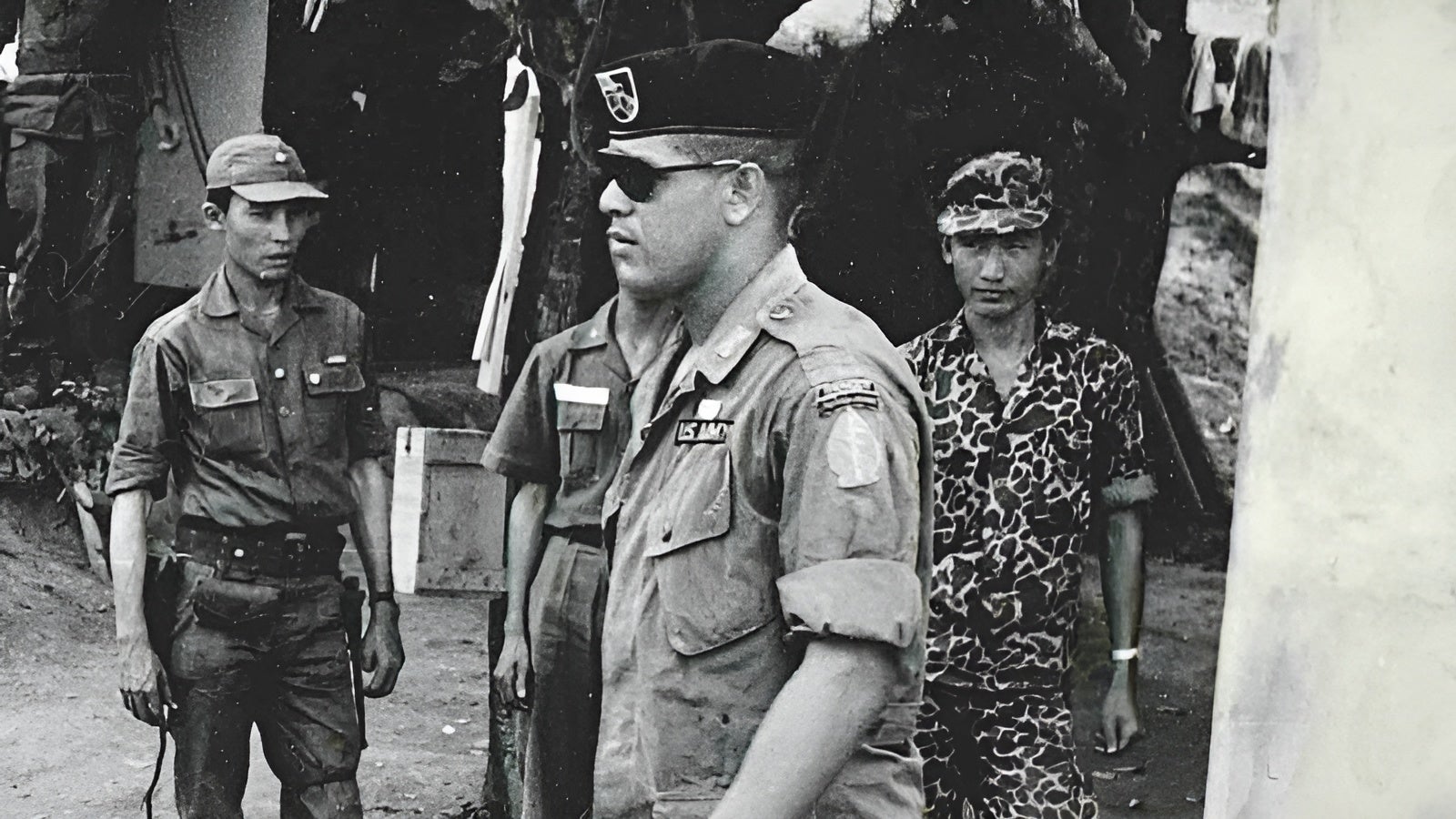Special Forces Hero Receives Belated Medal of Honor
Special Forces Hero Receives Belated Medal of Honor

Retired Col. Paris Davis received the Medal of Honor March 3 during a ceremony at the White House for saving the lives of fellow Special Forces soldiers during a harrowing fight in Vietnam.
President Joe Biden presented the 83-year-old Davis with the nation’s highest award for valor almost 60 years after his actions during a fierce battle against a much larger enemy force near Bong Son, Vietnam.
“The word gallantry is not much used these days, but I can think of no better word to describe Paris,” Biden said during the ceremony.
“Paris, you are everything this medal means,” Biden said. “You’re everything our generation aspired to be. You’re everything our nation is at our best—brave and big-hearted, determined and devoted, selfless and steadfast.”
In June 1965, a then 26-year-old Capt. Davis was commander of Detachment A-321, 5th Special Forces Group, 1st Special Forces, according to the White House. On June 17–18, leading an inexperienced South Vietnamese regional raiding force, Davis and his team learned that a “vastly superior” North Vietnamese enemy force was operating in the area near Bong Son, the White House said.
Davis led a pre-dawn strike on the enemy camp. “Through surprise and leadership, he gained the tactical advantage, personally engaging and killing several enemy soldiers,” the White House said.
“Wounded while leading the initial assault, Captain Davis continued moving forward, personally engaging the enemy in hand-to-hand combat.”
An enemy counterattack separated Davis from the main element of his team. “Charging under the intense enemy fire, Captain Davis personally led four others in the destruction of enemy gun emplacements and captured more enemy personnel,” the White House said.
As Davis regrouped his forces, the enemy attacked again, and he was struck by automatic weapons fire. The charging enemy soldier was so close that Davis fought him in hand-to-hand combat and was again wounded, the White House said.
Despite his wounds, Davis continued fighting, leading his men to reorganize while he called in more artillery and air support. Realizing that two of his fellow Americans, Master Sgt. Billy Waugh and Spc. Robert Brown, were “incapacitated and unable to move while trapped by enemy fire,” Davis suppressed the enemy guns and moved toward his wounded comrades, the White House said.
“Without hesitation, he called out, ‘I’m coming for you,’ ” Biden said of Davis.
He ran toward Waugh but turned back after he was shot in the arm, Biden said. He sprinted out again, but he couldn’t break him free. On his third try, Davis threw Waugh over his shoulder and was carrying him up a hill to safety when Davis was shot in the leg, Biden said. “In great pain, he continued forward and dragged him to the Company perimeter,” the White House said.
In a 1969 interview on the Phil Donahue Show, Davis said he was twice ordered by a colonel to evacuate the area. “I told him, ‘Sir, I’m just not going to leave. I still have an American out there,’ ” Davis said. “He told me to move out, and I just disobeyed the order.”
Davis exposed himself again to enemy fire to reach Brown, crawling 150 yards while being hit by enemy grenade fragments, the White House said. “Still fending off Viet Cong assailants, Capt. Davis hauled his medic up the hill,” Biden said.
Refusing medical evacuation, Davis continued to engage the enemy and lead the fight until all of his wounded troops were brought to safety. “Nearly 20 hours later, Capt. Davis had saved each one of his fellow Americans,” Biden said. “Every single one.”
After the battle, Davis’ commander, Maj. Billy Cole, nominated him for the Medal of Honor, “but the Army somehow lost the nomination,” The New York Times reported. “His frustrated commander resubmitted it, and inexplicably the nomination disappeared again.”
Over the years, Davis’ fellow soldiers would push for him to be properly recognized, with no results.
Davis’ friends and supporters eventually came to believe Davis was being overlooked because he was one of the first Black officers in Special Forces. “We’re all trying to right a wrong,” Ron Deis, the Special Forces team’s youngest member, told CBS News.
In January 2021, then-acting Defense Secretary Christopher Miller, a Special Forces veteran who fought in Iraq and Afghanistan, ordered an expedited review of Davis’ nomination that led to its approval earlier this year.
“I wish I could say … Paris’ sacrifice was fully recognized and rewarded immediately,” Biden said. “Sadly, we know they weren’t.”
Despite the long delay, Davis never lost faith, Biden said. “He never stopped believing in the founding vision of our nation, … a vision Paris fought to defend 58 years ago,” Biden said.
A native of Cleveland who was commissioned as an Army Reserve armor officer in 1959, Davis earned his Airborne and Ranger tabs in 1960 and his Special Forces tab in 1962, according to the White House. He served in Korea and Okinawa, Japan, before deploying to Vietnam in 1962 and again in 1965. During that second deployment to Vietnam, from April to October 1965, Davis earned the Silver Star, a Bronze Star with V device, Purple Heart with one bronze oak leaf cluster and the Air Medal with V device, the White House said.
During that same deployment, he also was awarded the Soldier’s Medal for saving a soldier who was stuck in an overturned and burning fuel truck. Davis pulled the soldier from the truck just before it exploded. He is now one of only four people to have received both the Soldier’s Medal and the Medal of Honor, according to the Army.
After retiring from the Army in July 1985, Davis became the publisher of the Metro Herald newspaper in Virginia. A resident of Northern Virginia, Davis was inducted into the Ranger Hall of Fame in 2019.

